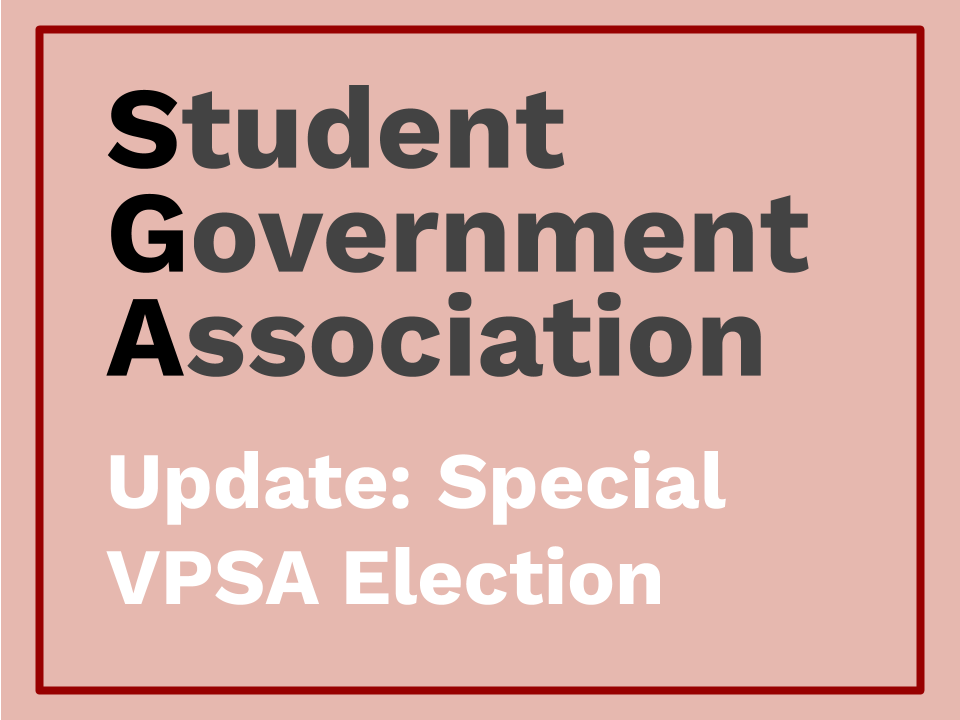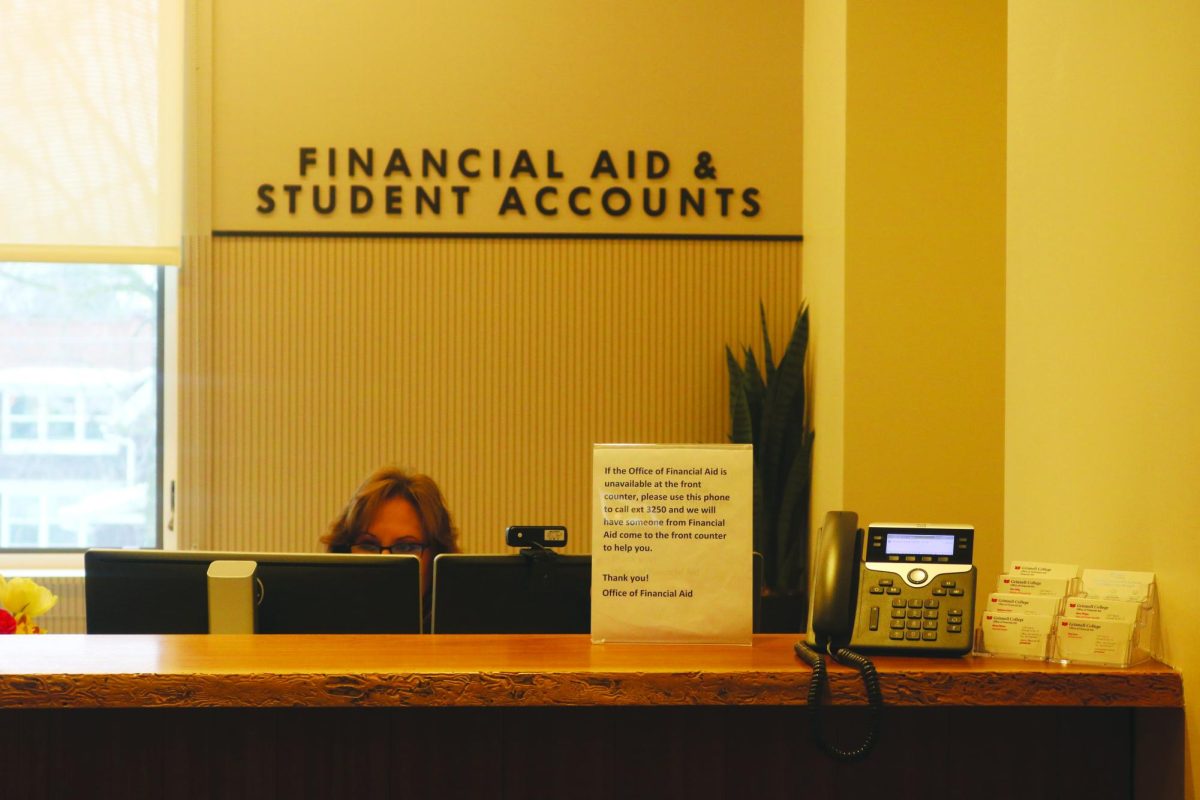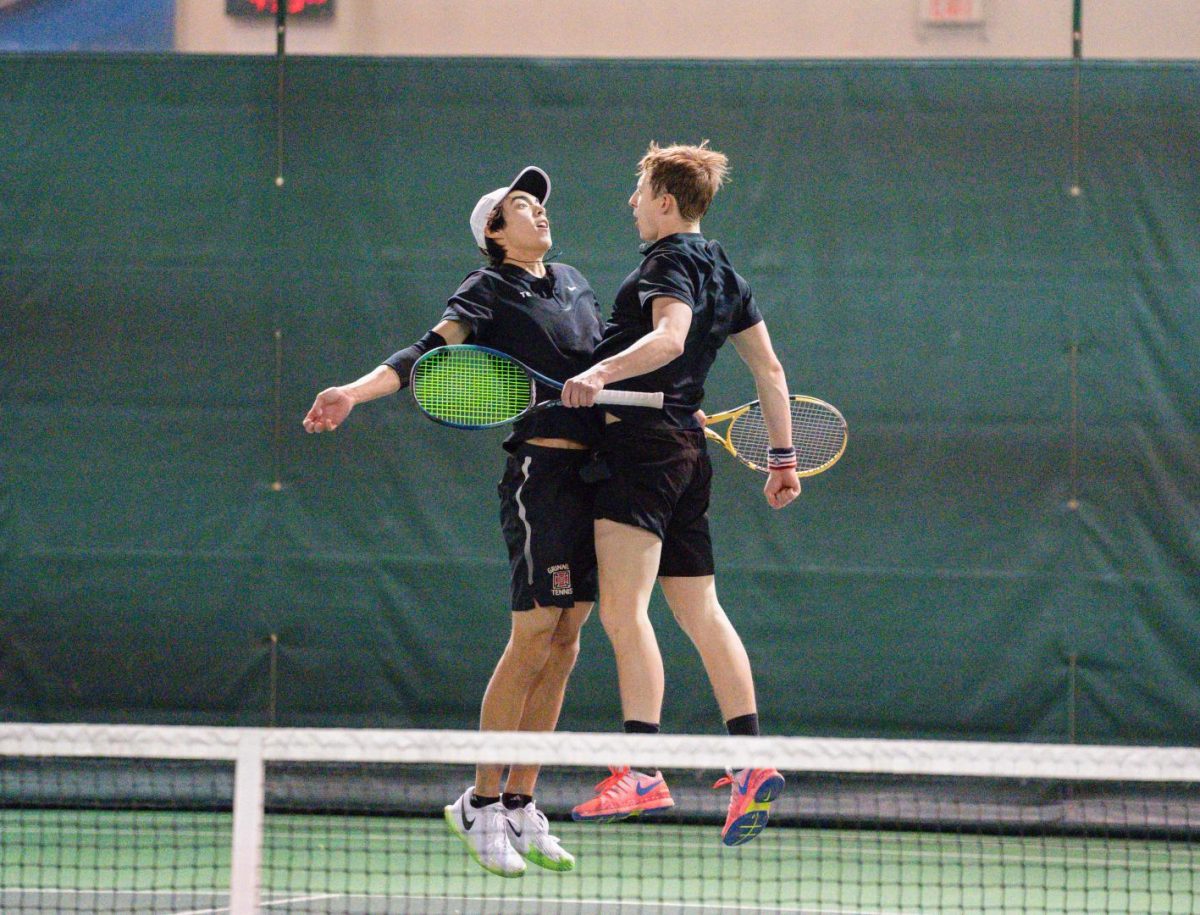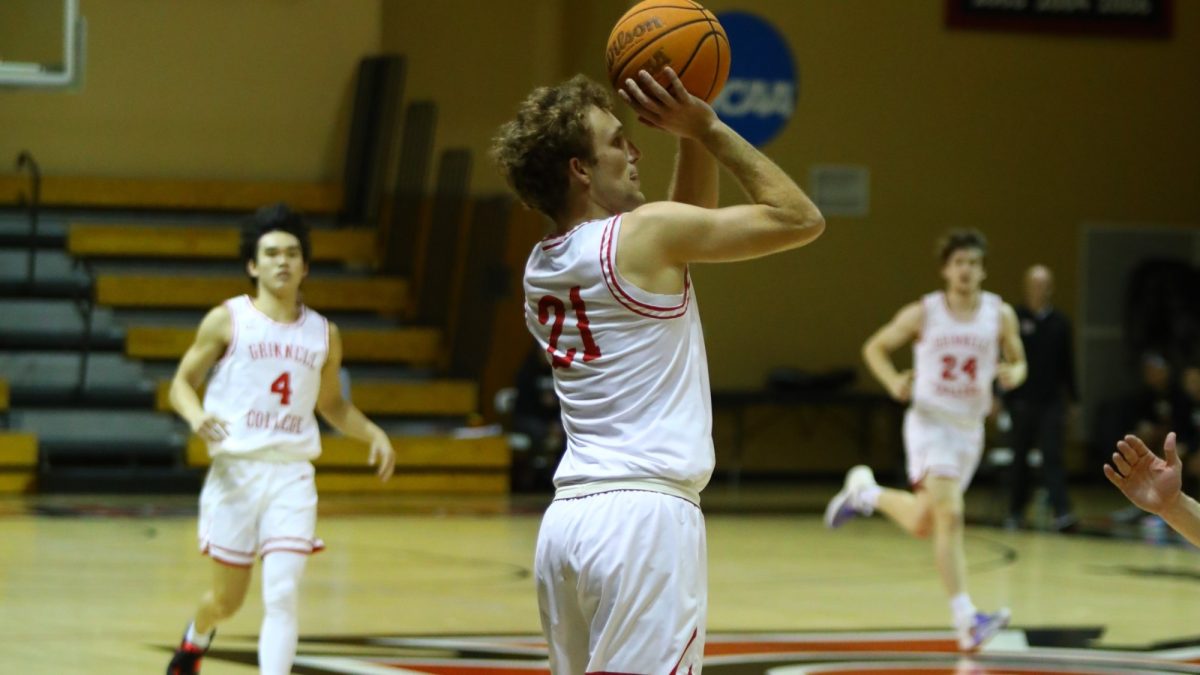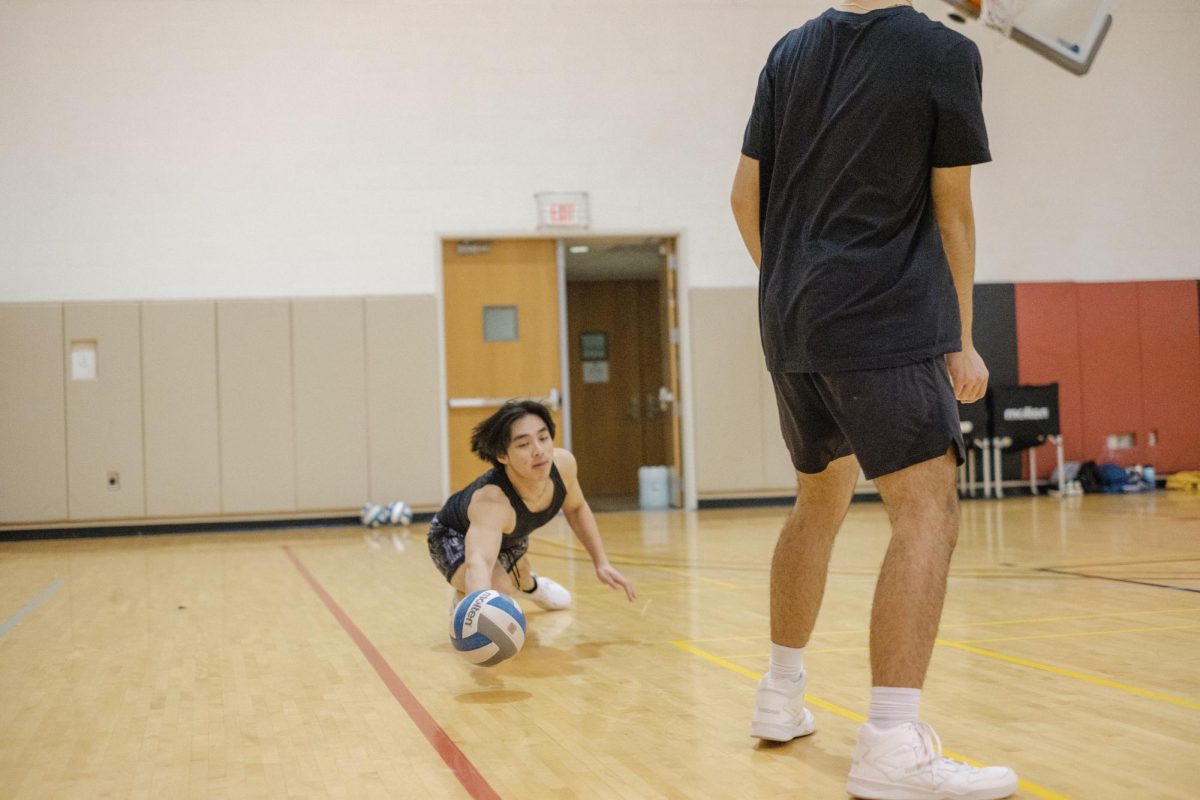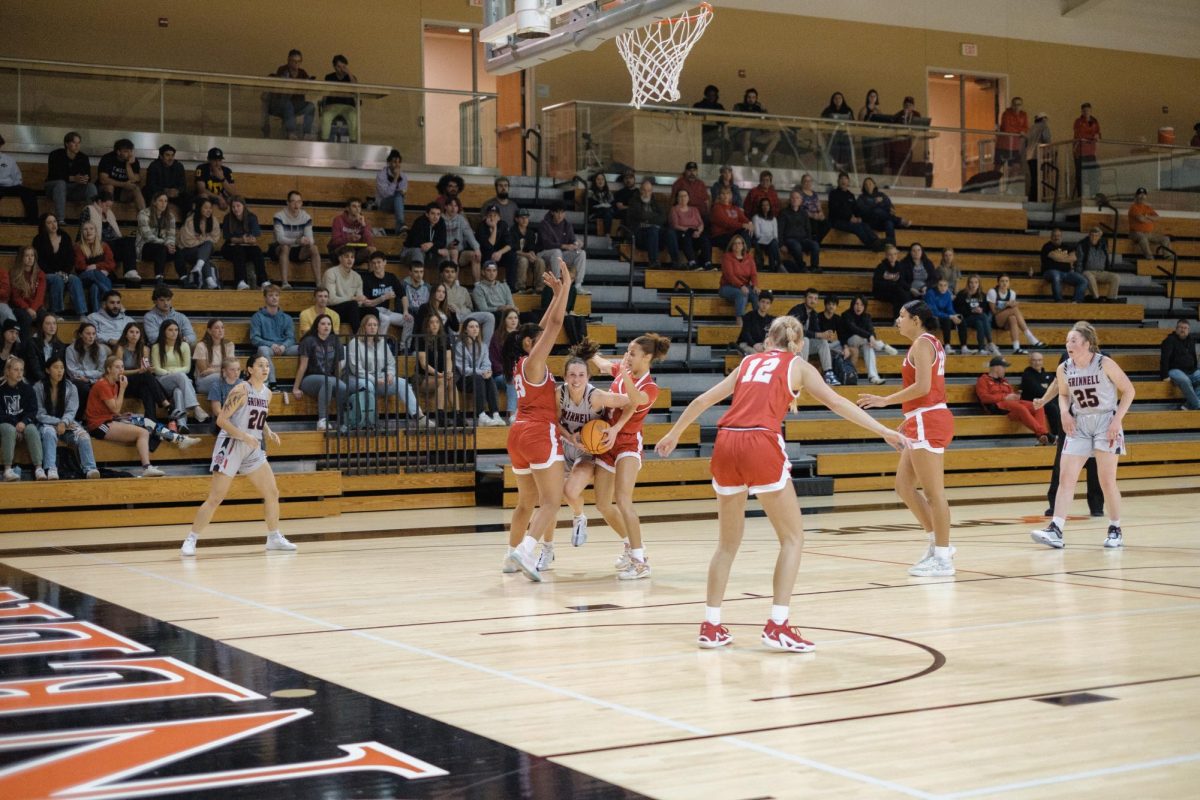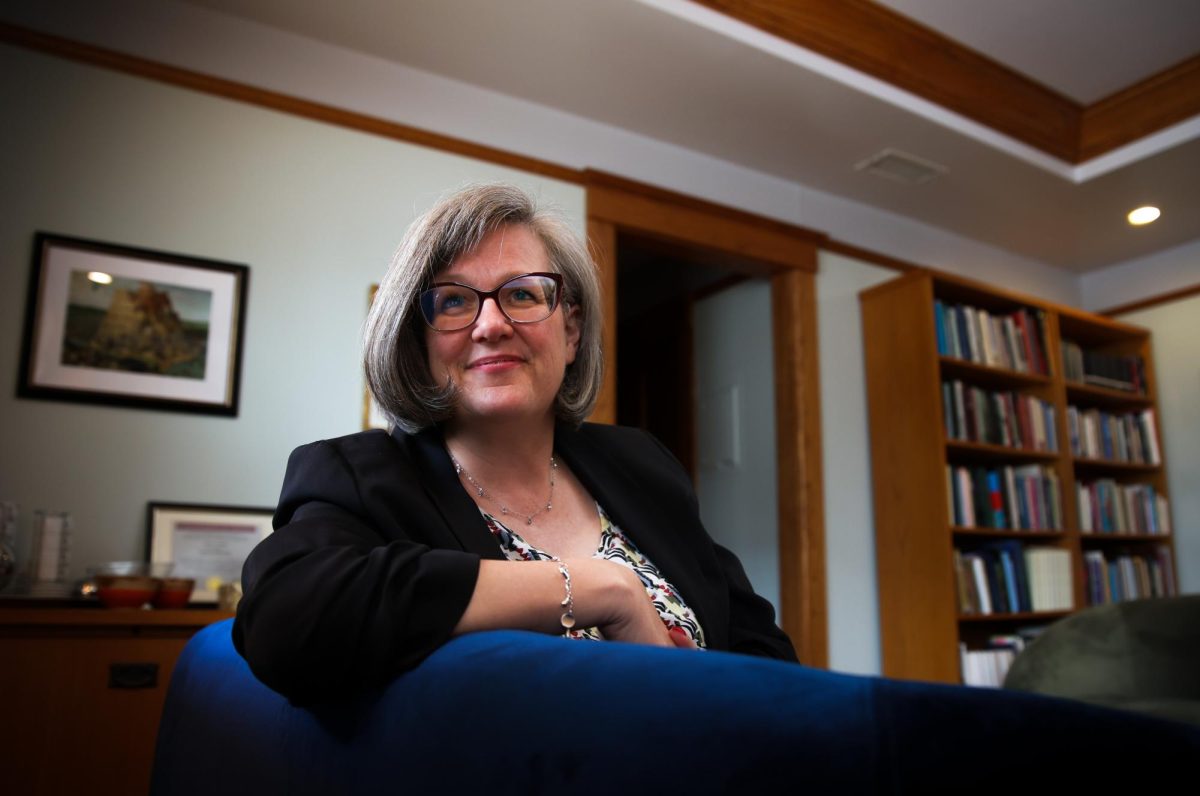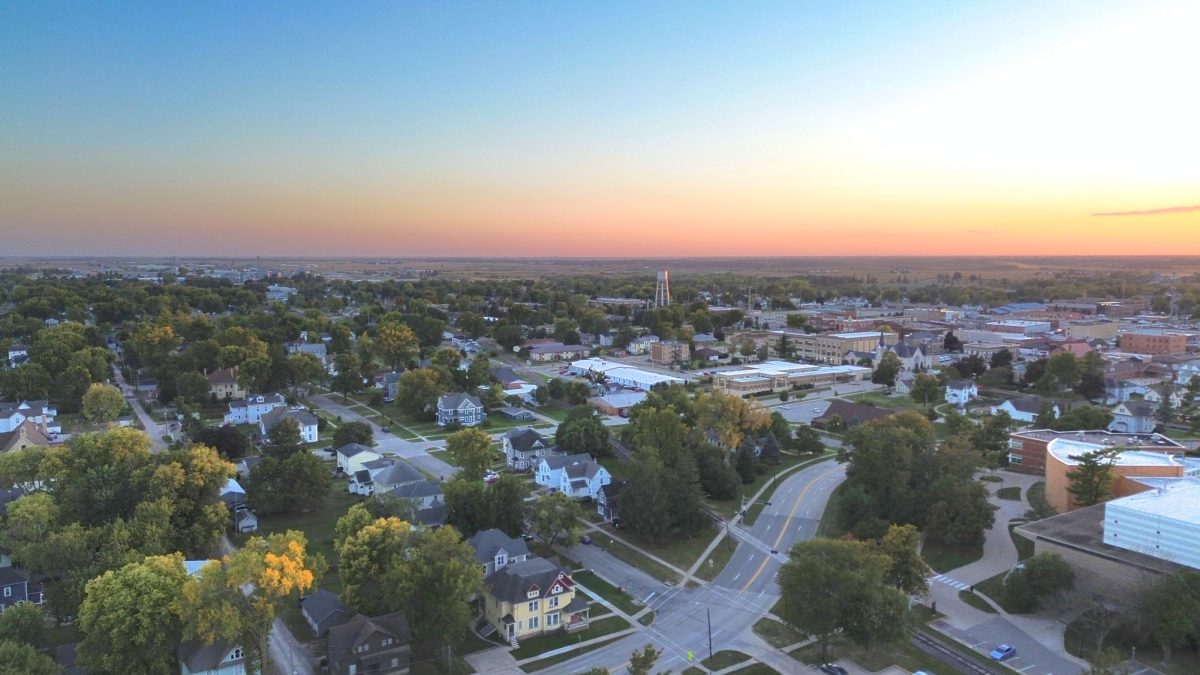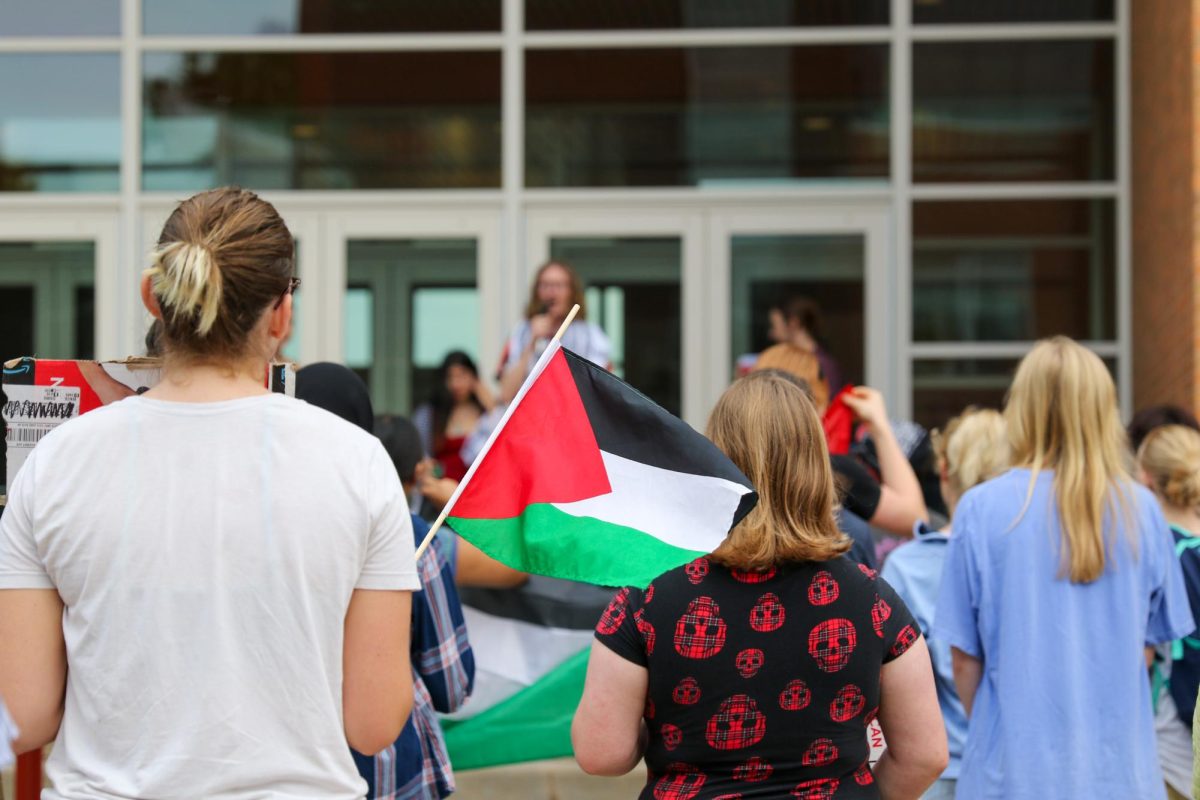The SGA Vice President of Student Affairs (VPSA) Candidate Forum took place yesterday at 3:00 p.m. Central time on WebEx, where candidates gave voice to their platforms by responding to multiple questions from students. The candidates discussed the most high-profile issues within the student body this year, including the experience of BIPOC students, particularly Black students, at Grinnell, and the push for greater transparency and labor compensation during the pandemic.
Voting for VPSA will open Monday at noon; Grinnell students will receive a ballot through their email. The elected candidate will be announced on Thursday, Oct. 1st.
Following the resignation of previous VPSA Amelia Zoernig ’21, there are three students running for the position: Hazel Murray, Francesca Dalla Betta and Ashton Aveling, all ’22 (Neil Israni ’22, who was originally listed as a candidate, is no longer running). Interim VPSA Syamala Neeraja ’21 is not running.
Murray’s campaign is centered around transparency, antiracism and accessibility.
“This is not something I normally would have done,” said Murray, when explaining why she was running. “With recent events and the things going on … I feel very fed up and I’m at the point where I want to take things into my own hands and really make things better for students.”
As she wrote in her candidate statement, Murray wants to work with CBS (Concerned Black Students) to update the original Black Manifesto, a 1971 list of resources needed to improve the Black student experience at the College. In addition, she will focus on pushing for more mental health resources and better access to providers.
Aveling’s platform is centered around advocacy, accountability and accessibility. When listing his previous experience with SGA and his work on campus, he said, “I want to use the momentum that I’ve built to hold the administration and SGA accountable for antiracist work and prioritize the experience of BIPOC students.”
During the forum, Aveling reiterated what he wrote in his candidate statement: “As a white man, I already obviously have a responsibility to keep myself accountable by using the privilege I have to amplify the voices of others and provide support.”
Dalla Betta’s guiding principle is community. In her opening statement, she explained that “community is also recognizing the privileges that some of us hold, and others don’t hold, and how we can all coalesce together.” She went on to specify her goals particular to the pandemic: trying to help international students in different time zones and students who are low-income and have lost their jobs, as well as amplifying BIPOC voices.
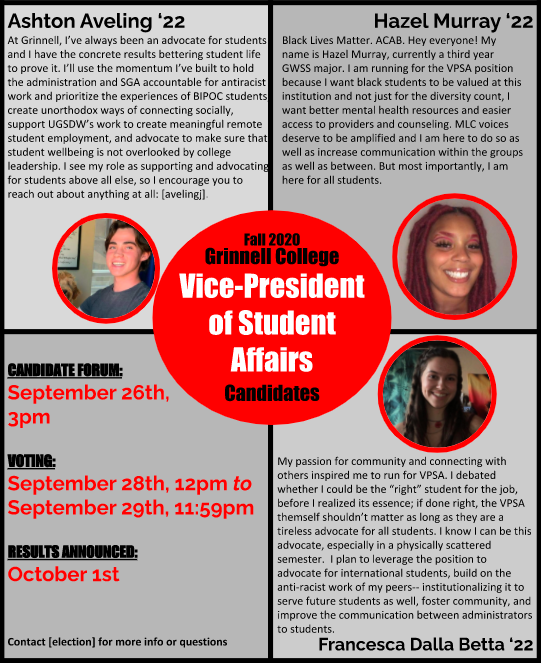
After all three candidates mentioned their focus on amplifying BIPOC voices, they went on to answer what antiracism means to them and how they plan to pursue anti-racist action in their role as VPSA.
Due to recent dialogue around racial slurs in the classroom, all of their answers had one thing in common: support for the 14 demands for antiracism in the classroom and beyond written by Raven McClendon ’22 and Errol Blackstone ’20.
Murray said that efforts towards antiracism are not only about having BIPOC students on campus but how to facilitate resources once they’re already there, and how the College holds faculty and students accountable. She went on to talk specifically about faculty: “They aren’t held accountable at all. Especially if they’re tenured, it’s very hard to keep them accountable, because they hide behind academic freedom.”
One recent example of a Grinnell College professor using racist slurs and rationalizing it with academic freedom is the case of Professor John Whittaker, anthropology, a white man who used the n-word in class and justified it by arguing that his right to use the word was protected by academic freedom.
For Dalla Betta, antiracism must be implemented everywhere beyond academics. She wants to “create spaces, physical spaces as well as more figurative spaces together, that have elements of supporting each other and making each other comfortable.”
“I think it’s about connecting students to leadership; it’s about amplifying Black voices, it’s about taking people very, very seriously and making sure things don’t get forgotten — especially over the long term,” said Aveling. Calling for more material action, he mentioned how he will advocate for leaders of different Multicultural Leadership Council (MLC) groups to earn a wage for what he said is “a lot of unpaid labor and work to support their communities,” as well as other communities beyond them.
Aveling also expressed his concern for first-year students during the pandemic and stated his intention to advocate for students to be given a full work-study grant during the pandemic, as opposed to half. In addition, he stated he will advocate for faculty to be more lenient in terms of workload.
The candidates also addressed their commitments to international students (all three candidates are domestic students). Dalla Betta, who worked during New Student Orientation with a number of international students, mentioned the complication of time zones and the difficulty this posed for students in different parts of the world. She said that whether it be 2:00 a.m. or 5:00 a.m., “I’ll be up, whenever you need me.”
“I think that I’m definitely not the best person to be able to know how to do all those things, I’ll be very honest,” said Murray in regards to international students’ needs. “I definitely would need to ask you guys, like, what are the things that are best for you and your success and your wellbeing?”
Asked by former VPSA Saketan Anand ’21 how they would leverage the position of VPSA in the face of the power the administration holds, the candidates all agreed that advocating for students’ needs would always come before maintaining nice relationships with people holding administrative power.
Aveling said: “Upholding niceness and upholding civility above results is obviously inappropriate.”
Similarly, Murray responded: “I don’t think we should be conflating rudeness with being firm and standing up for what we believe in. … That’s a part of putting antiracism into practice.”
The candidates were also asked how previous SGA cabinets inform the policies or actions they planned to implement as VPSA. Dalla Betta expressed her hope of reaching out to previous VPSAs as well as other previous cabinet members in order to learn and build on the work of those who came before.
In contrast, Murray answered that to her, it feels more like she’s running “in opposition of what SGA has previously done.”
Aveling responded in the same vein of reform: “SGA is widely perceived as being a very insular, privileged group of friends … having been elected in popularity contests.” He expressed his desire to see SGA decentralized and a Student Senate that is augmented with voting members from MLC leaders and the student body at large.
During their closing statements, all candidates recognized their individual privileges and their desire to advocate for those who are underprivileged in one way or another. Similarly, they reasserted their commitment to the amplification and inclusion of BIPOC students, as well as their desire to learn more from the student body and to advocate for their needs.
If you’re interested in engaging with SGA and getting involved with the work of VPSA, Senator applications are open at this time for any student residing in the U.S.


















































